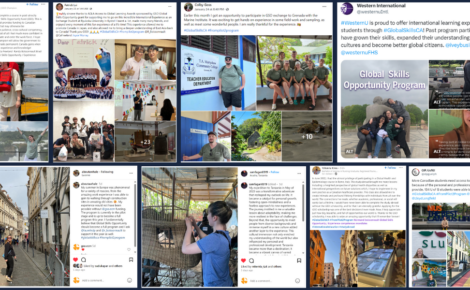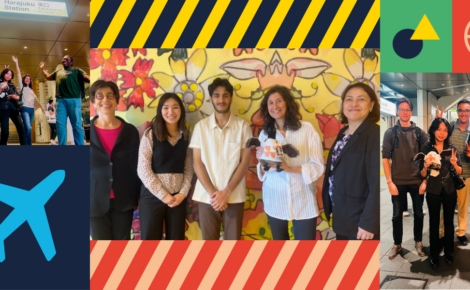A more unpredictable world presents Canada with serious challenges, but also new opportunities.
Margaret Biggs, Matthews Fellow in Global Public Policy, Queen’s University
Roland Paris, Director, Graduate School of Public and International Affairs, University of Ottawa
This op-ed was published in The Globe and Mail January 23, 2024
Canada is not adapting quickly enough to a world of increasing competition and conflict. The problem is not simply that Canadian governments and businesses have been slow to respond to changing global economic and security conditions. Too few Canadians are gaining the international experience that is needed to help our governments and businesses adapt successfully.
This may seem surprising given that Canada is one of the world’s most diverse societies. Diversity, however, does not automatically translate into worldliness, or into the global skills that Canada will increasingly require in its work force: people with the ability to help governments and businesses manage increasingly complex global problems.
In our task force report five years ago, we highlighted how far Canada had fallen behind. Our principal partners and competitors – including the United States, the European Union, and Australia – were investing in ambitious strategies to encourage their own postsecondary students to spend part of their degrees studying or working abroad. These countries recognized that producing graduates with international skills at a time of dramatic global change offered strategic benefits to their societies. Canada, by contrast, was doing little.
The numbers spoke for themselves. At that time, approximately 33 per cent of undergraduates in France were going abroad for part of their degree. In Germany, the figure was 29 per cent. In Australia and the United States, it was 19 and 16 per cent, respectively. By contrast, only 11 per cent of Canadian students did so.
The good news is that in 2021, Ottawa partnered with colleges and universities across the country to launch a Global Skills Opportunity pilot program to make international learning experiences more accessible to Canadian postsecondary students.
This is not a traditional study abroad initiative. It offers young Canadians educational opportunities not only in the classroom, but also through temporary work placements and internships abroad. It also targets a wider range of countries. While Canadian students have traditionally travelled to a few familiar destinations – notably, the United States and western Europe – the new program has emphasized emerging countries such as Indonesia and Brazil, which are playing a bigger role in the global economy.
Over the past two years alone, more than 6,200 Canadian college and university students have completed international study and work placements through this initiative. They represent the promise of a future generation of Canadian professionals with international knowledge and connections.
However, the Global Skills Opportunities pilot is scheduled to end in 2025, and its continuation is uncertain. At a time of economic strain at home, it risks being labelled a luxury for “rich kids.” However, this perception would be wrong. A full 75 per cent of the participants so far have come from groups that have traditionally been under-represented in university and college education, including students from low-income backgrounds and Indigenous students.
This is no accident. The initiative is designed to give students from all backgrounds a leg up and prepare them for good jobs. Research shows that people who study or work internationally are more likely to complete their studies and to find employment after graduation, and that these benefits are even more pronounced for students from disadvantaged backgrounds.
Employers are increasingly looking for people with the skills that these international experiences provide. According to the Business + Higher Education Roundtable, which represents some of Canada’s largest private employers, international learning improves students’ critical thinking and problem-solving abilities and their ability to adapt to different cultural environments, in addition to teaching them about the specific countries where they study or work.
Businesses and governments alike will need more people with these skills to help them navigate the complexities of a changing world – and with good reason: The long postwar era of relatively easy prosperity and security is over. Increased competition for emerging technologies and critical resources is rapidly reshaping global markets and supply chains. Geopolitical competition shows no signs of abating. A more unpredictable world presents Canada with serious challenges, but also new opportunities.
Canadian companies must take chances in new markets and with new products, while simultaneously anticipating and managing risk – a difficult but essential task. The federal and provincial governments must also support them, including by implementing Canada’s Indo-Pacific strategy and by advancing Canadian interests in other parts of the world.
Canada’s public and private sectors will have to work hard to meet these challenges head-on. Without a work force that has international knowledge and experience, they will be hobbled in these efforts – and Canada will fall even further behind.
-30-




